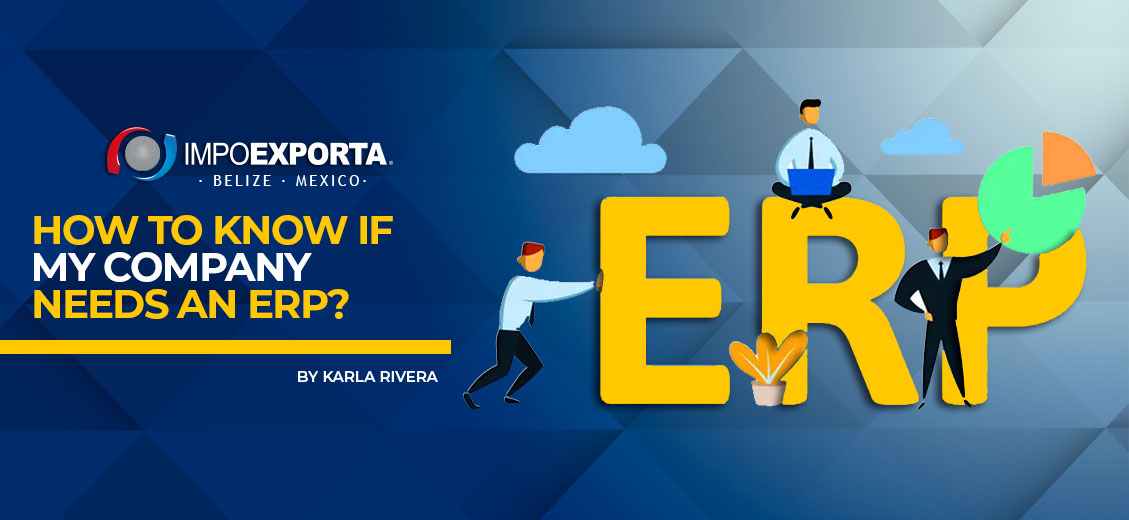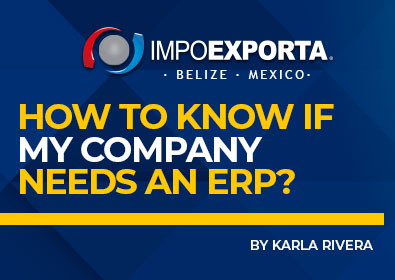
Cybersecurity in companies
4 February, 2020
When your business, I stop being a little Company and become a micro or small company, with that growth, the problems also grew, because between more departments and more personal, the flow of information becomes slower or on the way stagnates, becomes incomplete or flat or arrives. If you are at this point, maybe that is an indication and you should decide for an ERP, but and that…. What do you eat with? My Mom would say, well let's quickly see what it is? What is it for? Why should we implement it? and especially if you require it in your company.
What is an ERP?
Enterprise Resource Planning (ERP) is a system that gathers information from all areas of the company, such as accounting, finance and human resources, among others.
The interesting thing about these systems is that they can be used on different platforms, since they do not require specific hardware; they are organized in modules and; They have great flexibility since their implementation can be modified in existing work processes, according to their needs.
What are they for?
Some of the main utilities that ERPs contribute to organizations are:
- General and financial accounting
- Accounts payable / Accounts receivable
- Payroll
- Materials management
- Material Requirements Planning
- General production schedule
- Cost control
- Human resources management
- Logistics
- Purchases and supplies
- Marketing and sales
- Electronic commerce
- E ‐business
Why should we implement an ERP in our company?
As I mentioned at the beginning of this article the more a company is growing, the flow of information is slower, so having an ERP at home provides us quickly and efficiently with the information we need to have an optimal operation, reduce mistakes, and increase productivity.
Now the 64,000 question is ... Do I need an ERP?
Answer this short test and you will know:
1. More than one capture system is managed within the same process: Sale, purchase, production, etc.
2. Multiple captures of the same information are made from one department to another or from one person to another.
3. The report of the same information is not consistent between areas, for example, sales report presented by accounting vs. commercial area vs. finance).
4. Obtaining month-end figures is delayed and rarely comes out on time.
5. The relevant information of the company is stored in a countless number of files scattered on multiple users' computers.
6. The company has grown and its systems and processes are now obsolete and / or insufficient.
7. The processing of the information for the address is not immediate and requires more work.
Mind you, if you answered more than 3 with a yes, it is time to evaluate and select a comprehensive ERP information system to ensure the continuity and solvency of your business.

